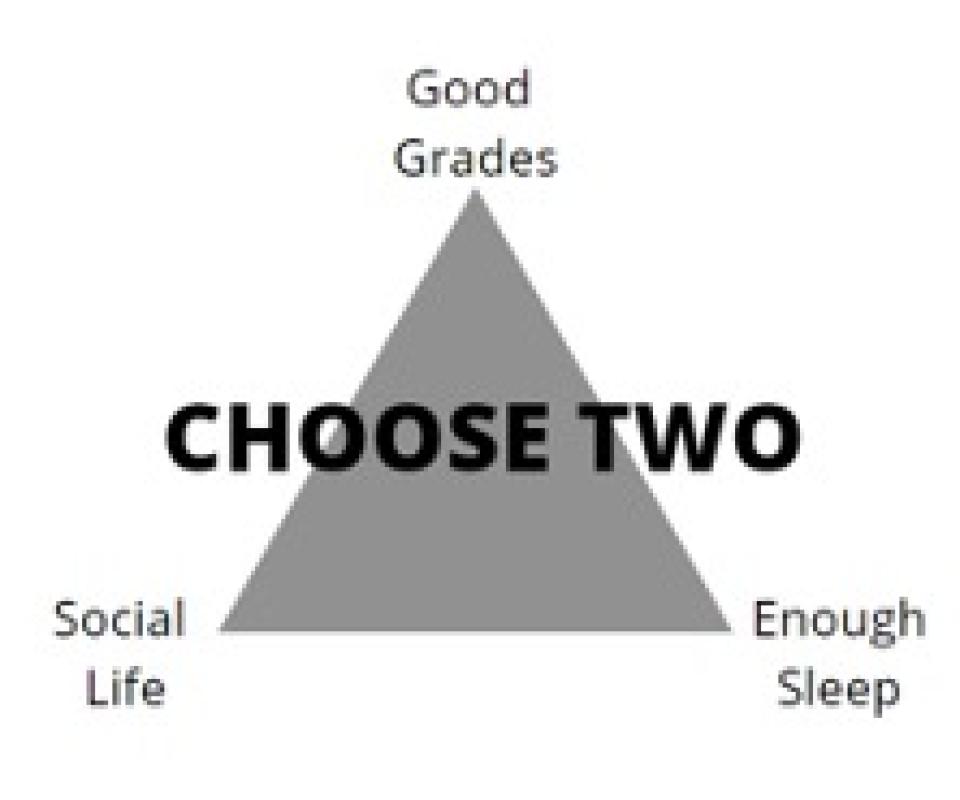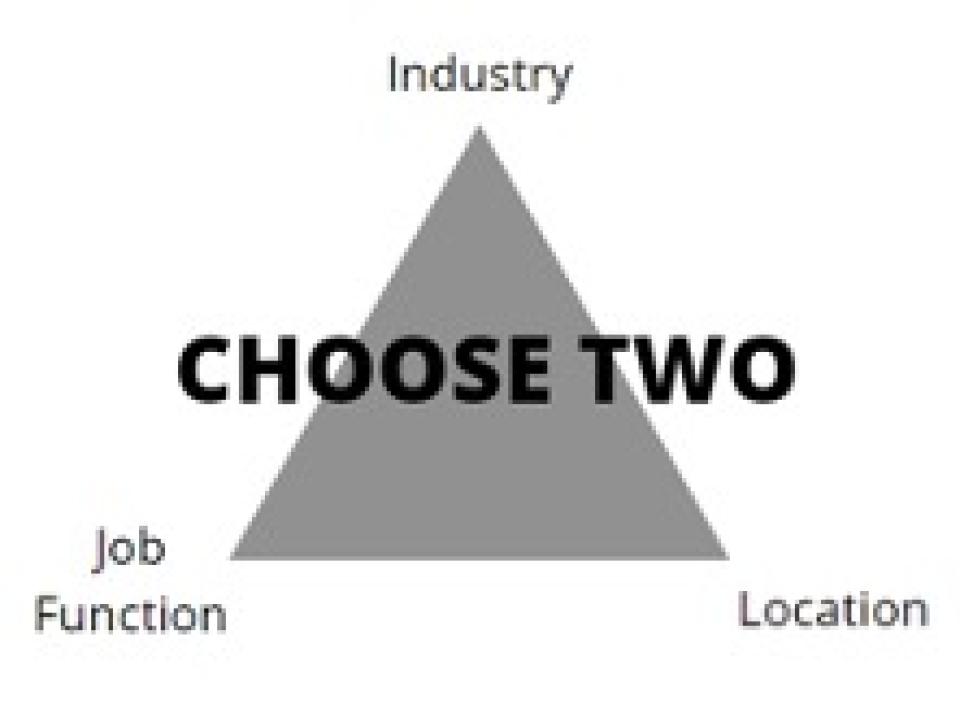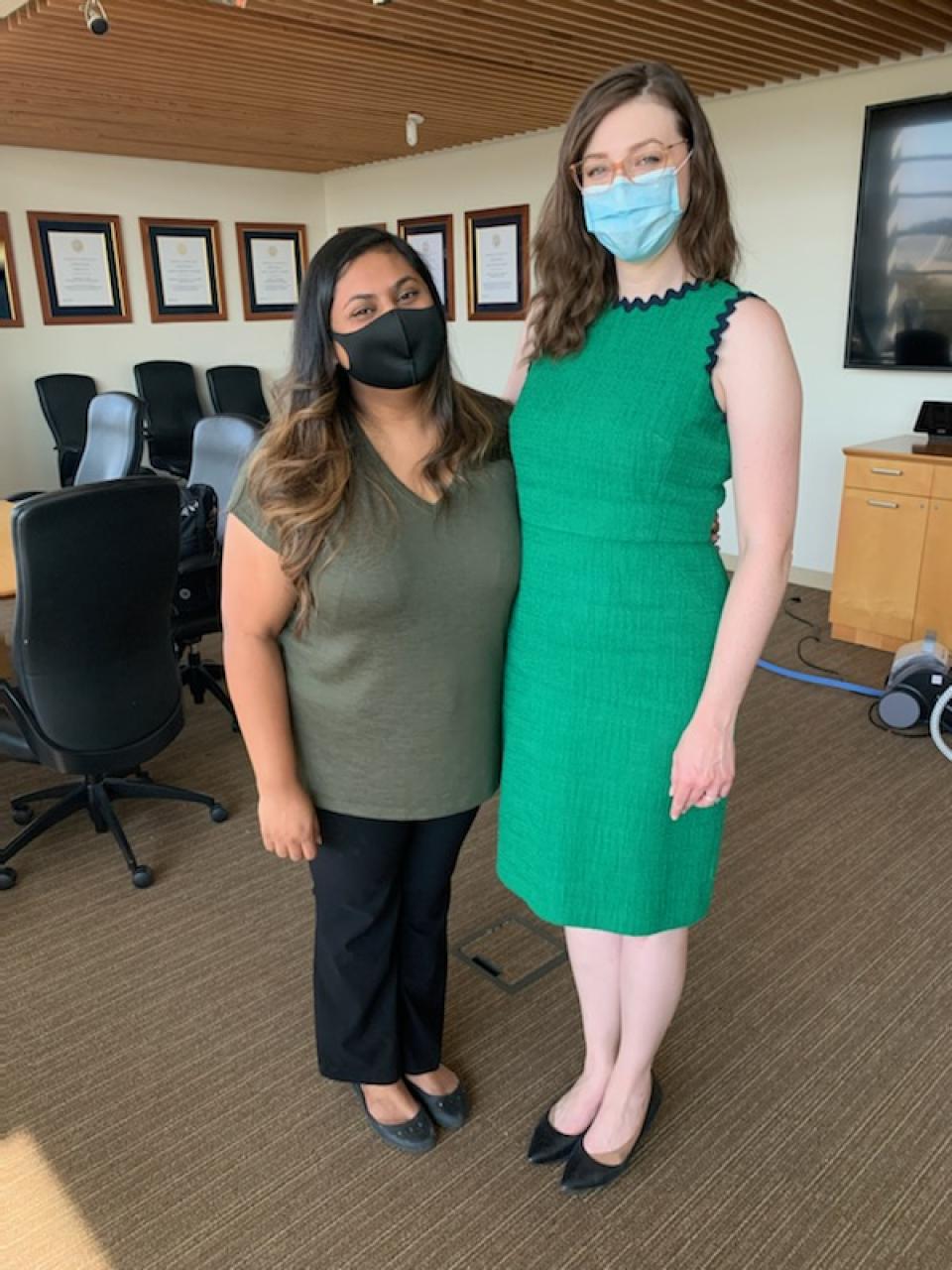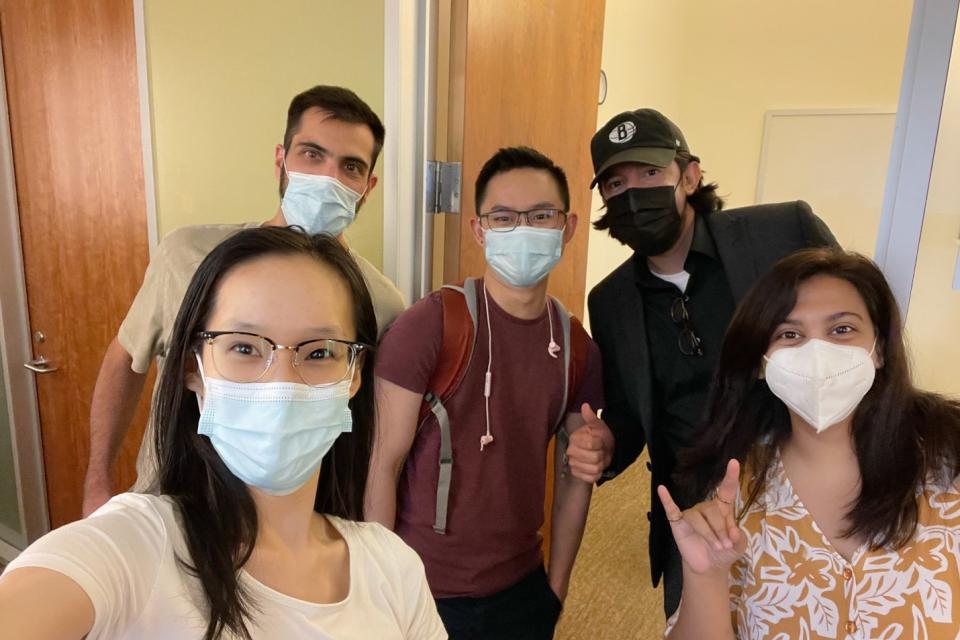What I’ve Learned Transitioning from Music to Marketing
My 180-degree career pivot: the trifecta of difficulty—location, function and industry

How did you know when it was time to pursue an MBA? For me, it occurred on the side of the road between Iowa and Nebraska.
It was one of the high-holy days of American freelance musicians—the lead up to those patriotic, Fourth-of-July concerts.
I was driving back to Omaha, Nebraska from a rehearsal in Sioux City, Iowa, on a nearly deserted highway at midnight. With the modest skyline of Omaha twinkling in the distance, a deer walked in front of my car with just enough distance for me to remember not to swerve.
A handful of thoughtful drivers immediately joined me on the shoulder to make sure I was fine. (I was shaken but unharmed.) In pragmatic, Midwest fashion, they cleared the deer from the road and waited with me until a state trooper arrived. An hour after that, I was gathered up by my boyfriend and taken home. The following afternoon I played the gig for $250.

What Will You Choose?
Your revelation’s probably not as dramatic as a car crash. It may be a quiet voice begging you to start your own business. Perhaps the stresses of the pandemic made you realize that XYZ wasn’t really what you set out to do. Still, you’re looking to the MBA program to pivot, open doors previously locked or create a new reality.
You’ve probably seen this meme: a triangle whose main text ominously commands, “CHOOSE TWO.” Alas! Each point has a priority you desperately need to meet. The triangle is surrounded by “good grades,” “social life” and “enough sleep.”

For career switchers, the dilemma is often presented as a choice to change industry, job function or location. It’s considered unwise to change more than two at any given time; but I have always balked at limitations. When I know what I want, why would a meme define my path forward? No, indeed! In 2018, I knew I wanted to career switch all of them. And I had an idea of how I wanted to switch.
It’s Not Where You Are, It’s What You Do With The Tools You Have
It can be intimidating looking at any MBA program across the country, knowing that inspiring future business leaders with years of experience are vying for those same spots.
I am not one to think too comparatively about others—but I am a dissector of challenges. You could have all the resources in the world laid at your feet, but they don’t help if you don’t use them.
Switching careers isn’t just plotting a new course on a map. It’s switching out your car for a sailboat. You may have collected an admirable set of skills that are perfectly applicable to the direction you want to go, or you may need to wrap your head around entirely new industries. I had barely any office experience beyond administrative assistant. If I wanted to go into marketing, I knew I needed to get some experience.
Use your current job or volunteer at an organization to gain experience related to what you want to go into. Are there committees you can join? Local non-profit organizations you admire that might benefit from your help? I was fortunate to have a supervisor who wanted me to use marketing to improve an English department’s student recruitment.

Enroll in or audit classes at a local college or university to lay the foundation. I took marketing classes and audited an accounting course before starting at UC Davis. Depending on your needs, LinkedIn Learning or Google Certificate courses may be all that’s needed to begin repositioning on a new trajectory.
Invest the Quality Time for Serious, Structured Self-reflection
Understand your motivations, your drives—not just for applications. It will help guide your direction in school and prioritize your activities so that when you step onto the road to a meaningful career it is firm under your feet. Be direct and honest with yourself.
Take the time to watch TED talks like “Start with Why.” Reflect through journaling and exercises like Ikigai mapping. These will put you in the mindset to answer the interviewer’s question, “but why?” with an authentic answer that you truly believe in.
If you’re doing a big career switch, it will be tempting to fall back into the industry you previously worked in. Doing this work will allow you to truly know if that’s something you’re willing to consider.
It may be that you discover a yearning to bring your new skills to improve the place you came from. For others, it may be important to make a swift and firm departure from something that wasn’t aligned. Only by doing the deep work on yourself will you truly know for sure.
Marketing will never be the same feeling as performing on stage with friends, every bone in my body vibrating with the force of sound. But my draw to marketing is seeded in the same emotional need that drove me to performance: creating an emotional connection with audiences.

Without taking hours over a couple of weeks to map my thoughts on multiple whiteboards and talk aloud to myself, my response to “but why do you choose marketing?” would have been, “it’s the most creative arm of business,” even knowing full well that marketing is a structured discipline with little need for art and design.
These exercises also allowed me to reflect on how much I wanted to stretch my wings as a leader, and why. By knowing myself so thoroughly, I knew I wanted to pursue leadership positions—strategically so that I could invest time and energy to the practice of being a leader. Introspection helped me understand what I wanted out of being a student ambassador and running for club president. As co-president of Women in Leadership, I got to practice collaborative leadership, team communication and how to motivate a group.
Grit—You’re Gonna Need It
Some career switches are easier than others.
You will come upon many students who need the MBA to career switch to a different title; but their industry, their company focus or even their area of expertise will remain the same. Some students will be looking to tack into an industry adjacent to the one they were working in.
But, if you’re like me and are using an MBA to do an Olympic-worthy 180, hitting the trifecta of difficulty—location, function and industry—you’re going to need to be realistic about the kinds of challenges you will face. So strap up and brace yourself.
Sure, we’ve heard “it’s all about how you spin your experiences” and “networking is key.” These are significant factors in making the transition, to be sure, but it would not have served me to ignore the following: there is a 99% chance you will have to take a step back to move forward. That’s okay.
A trifecta pivot means you will be learning as much as you can about things you don’t have experience in. That does not mean it’s impossible. It just means it’s challenging. If you’re at the point where you’re reading student blogs at your preferred schools, then you’ve got the grit. You’re ready to jump feet first into the deep end.
And I hope you’ll choose the supportive environment at the UC Davis Graduate School of Management.


